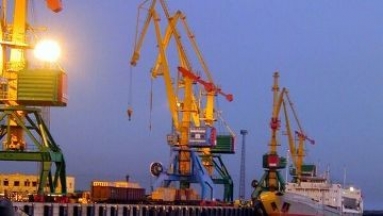The Board of the Kaztransoil Stock Company has decided to sell the Batumi-Terminal Limited Company, one of the most important Georgian enterprises, which has belonged to Kazakhstan since 2008. The Batumi oil terminal is a systematically important enterprise, as well as the Tbilisi gas distribution network of Tbilgas which also belongs to Kaztrandgas-Tbilisi – a branch of the Kazmunaygas energy giant.
The fate of the company is discussed by Tbilisi and Astana at a high level. Implementation of direct management in Kaztransgas-Tbilisi caused indignation in Astana. Moreover, despite intensive negotiations, the sides couldn’t reach a compromise. It's no surprise that Kazakh owners think about selling Kaztransgas-Tbilisi. According to unofficial data, they are negotiating with Azerbaijani and Russian colleagues on the issue.
However, the possible selling of the Batumi oil terminal is a much more significant business. That’s how Kazakhstan expresses its doubts about the prospects of the Georgian direction of transportation of Kazakh energy resources, primarily oil, through the Black Sea ports of Poti and Batumi. Since gaining independence, Georgia has thought that the transit function is one of the main reasons for strengthening of statehood and developing a geopolitical function. The direction of Georgian foreign policy has always been unchanged. Eduard Shevardnadze and Mikheil Saakashvili had many times called Kazakhstan a ‘priority partner’, welcomed Kazakh investments, and created ‘special conditions’ for Kazakh investors. Shevardnadze called Kazakhstan a ‘great power’, offered access for the Kazakhstan merchant fleet to the Black Sea with a base in Batumi and Poti; while Mikheil Saakashvili after his first visit to Astana excitedly spoke about the new capital of the Central Asian country: “I want to return to the wonderful skyscrapers which have been built by Nursultan Abishevich and take them with me.”
Disputes about Kaztransgas-Tbilisi have been undermining the relations for several years; and finally they led to the principal decision on selling the Batumi oil terminal. The decision may mean that Kazakhstan rejects transportation of oil through the South Caucasus Corridor completely.

Giorgi Khukhashvili, a former advisor to the Prime Minister of Georgia, confirmed such a possibility in an interview for Vestnik Kavkaza.
Khukhashvili: It is sad that Kazakhstan has decided to sell the Batumi oil terminal. If Georgia intended to implement its potential as the ‘bridge between Europe and Asia’, it should have been prevented. Kazakhstan played an important role in building the communication corridor East-West. The port infrastructure is strategically important. It is easy to realize that if the infrastructure is sold, Kazakhstan will have less interest in transporting oil through Batumi, as well as other cargos. Moreover, Kazakhstan is to sell not only the terminal, but also Kaztransgas-Tbilisi. There is a problem of Georgia’s state debt to Kazakhstan. Therefore, the trend concerns us.
Vestnik Kavkaza: Do you think the Georgian authorities made systemic mistakes in this issue?
Khukhashvili: The government had to pay more attention to the problems which emerged among Kazakh investors. We are speaking about branches of the state company of Kazmunaygas.
Vestnik Kavkaza: Can these problems lead to a worsening of intergovernmental relations?
Khukhashvili: I don’t want to make a drama. However, the fact that the investment activity of Kazakhstan is drastically reducing is very negative.
Vestnik Kavkaza: Who might buy the strategic facility? Experts mention Azerbaijan and Russia.
Khukhashvili: There will be a buyer anyway. The point is about the price. From the point of view of liquidity, the Batumi oil terminal is even more valuable than Kaztransgas-Tbilisi. Kazakh investors didn't sell the Tbilisi gas distribution network earlier, because they cannot return to a management system, as the company has foreign management. These two topics are connected closely, as Kaztransgas-Tbilisi and the Batumi oil terminal have one owner – the state of Kazakhstan.






